Funerals, as we know them today, are changing and there are even growing amounts of people who are choosing not to have a funeral at all. But what are the ramifications of not opting for a traditional send-off?
There is currently no legal or ethical reason to carry out a funeral if the deceased or family don’t wish to have one. Proper disposal of the body either by burial or cremation is the only obligation. Funerals are a method to grieve for the deceased and this can be done in a number of other ways.
Deciding not to have a funeral and the knock-on effects of that decision can change a lot depending on who is choosing not to have the traditional ceremony.
If you are currently dealing with this situation, I invite you to read the rest of this article to help with your struggle.
Legal requirements to have a funeral
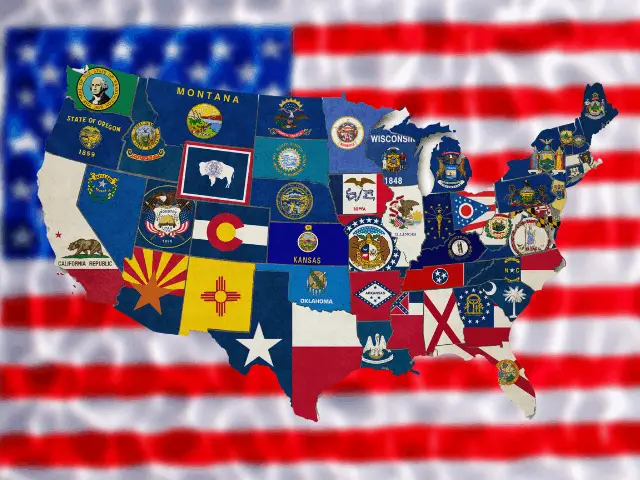
In the US there are no laws that make a traditional funeral mandatory. The law only requires the remains to be properly disposed of and requires a delay of 24 to 72 hours before burial or cremation depending on the state the person died in. Use of funeral homes isn’t usually mandatory either.
The simple truth is that as long as a body is buried or cremated in a suitable time period and before it is buried it is stored in the right way, you do not need to have a funeral ceremony.
Some states do have laws about who can transport the dead and who can cremate them, but in most places, you can theoretically handle an entire burial without outside interference.
So, as the government has no qualms over people forgoing the traditions of a funeral, the next big question is why are people choosing to do this?
Reasons why people opt out of funerals
Funerals are not a common feature in most of our lives and have a lot of negative connotations for a lot of people. They are costly, stressful to organize and extremely unpleasant experiences for many.
So if, you are trying to justify why you don’t plan to have a funeral, or trying to get your head around this request, check out the common reasons for not having a funeral below.
Lack of funds for a funeral
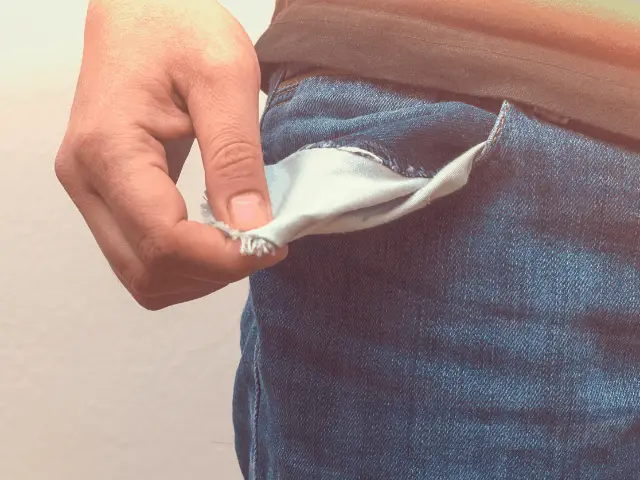
By far the most common reason for not wanting to have a funeral is the cost of the thing. The average traditional funeral in the USA can cost up to $12,000 and often more. Prices vary depending on whether you have a burial or a cremation and where the funeral takes place and how many guests etc.
Some families simply do not have the funds to cover a normal funeral and run the risk of going into debt, which they will have to pay if they don’t opt-out. Of course, there are ways to reduce the cost of an average funeral, but many families do know this or don’t even have the cash for a budget funeral.
Even burials and cremations cost money, but by having a direct burial or cremation you can cut the costs down to around $700-$1,200 depending on the casket you choose (remember you don’t even need a casket for a burial or cremation).
Fighting the system
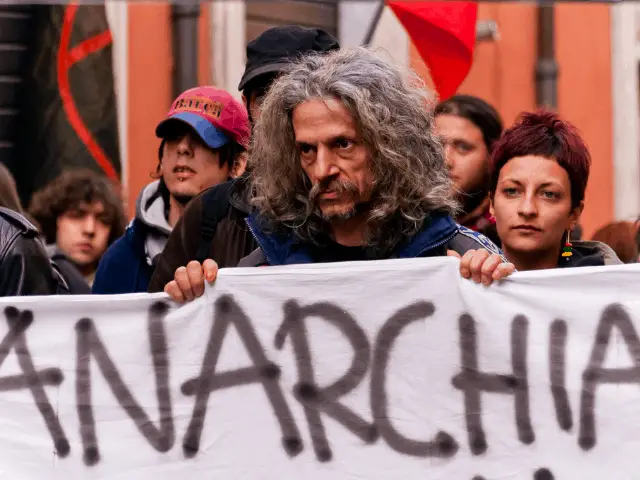
Sometimes a person or family does have the money to cover the cost of a traditional funeral, they just don’t want to. The funeral industry is a $17 billion a year business, and there is nothing wrong with getting paid for a service.
What rubs people up the wrong way is the idea that funeral homes manipulate grieving families who are easily convinced to pay more than is necessary on services that they may not know are unnecessary.
Funeral plans and life insurance can also be a poor financial decision for many as they do not always pay out the required amount for a funeral or even the money that was paid into them.
If you are reading this and thinking, wow maybe I should get some cover, then feel free to learn about my recommended life insurance brokers here.
People aware of the difference in the price of commonly sold funerals and the price you could pay may choose to refrain from supporting the industry at all.
This is why in their Will they request a very simple cremation or burial and state clearly that they do not want the expense of a funeral.
If you are learning the lessons of not having life insurance and leaving your loved ones with enough money to cover your final expenses, then see my recommended life insurance brokers for the cover you REALLY need.
No peers or family to attend
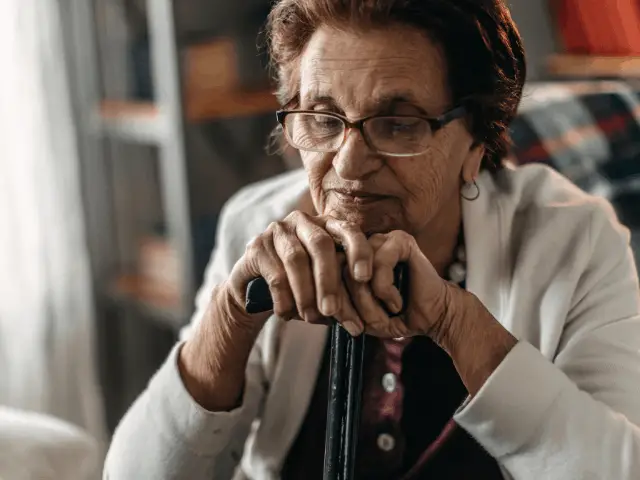
Another reason not to hold a funeral is when the deceased doesn’t have many living relatives or friends who can attend the ceremony. This can happen quite often when people get old and outlive all their contemporaries.
In these cases, the funeral-goers may have more connection to the surviving child or neighbor trying to hold the funeral than the actual person who has died. So, it’s understandable for people in this situation to choose not to pay out for the full ritual and just to keep things very simple.
The wish to be different
Another group of people may have a long list of possible guests for their funeral, but they don’t want to have a stuffy event to celebrate their life. Instead, they opt for a fuss-free cremation or burial and request that their ‘funeral’ be some other fun event or memorial.
This could be anything from a party to a vacation paid for with the money which would have been ‘wasted’ on a funeral.
There are also people who want to have a more natural or green burial, perhaps involving a burial on property owned by the family. In these situations, many of the traditional ways of holding a funeral can be dispensed with.
In the pursuit of science

Many Americans in addition to being organ donors choose to donate their entire body to science when they die. When this is done, the organization that accepts the donation becomes responsible for disposing of the remains in an authorized way after finishing with them.
As a funeral normally centers around burying or cremating a body, it makes little sense to hold a traditional ceremony in this case.
A question of time
When a person dies from a contagious disease the state may be forced to dispose of their remains quickly and in a way to protect the general public. When this decision is made the family will not be able to take pocession of the body themselves.
Again, without the body to bury or cremate families in this situation may forgo the normal funeral and look for another way to say farewell to the deceased.
No family close by

As the world gets smaller with globalization, the distances between families can grow larger. If someone dies without any family around them rather than flying the body out to the next of kin the decision may be to forget the funeral. Direct burial or cremation can be carried out from another city or country, and in the case of cremation, the ashes are much cheaper to transport for later scattering.
Another great option is to get the ashes made into a permanent piece of jewelry, you should check out the beautiful handcrafted pieces Mark Hamilton makes with cremains by visiting his site here.
Requesting no funeral
If you do not want to have a funeral for yourself, it is very important to make that fact known to the right people. if you have family around you, then you have to talk about your wishes for your funeral arrangements.
In addition to that, you should put your wishes into writing. You can do this in your Will and also in a document setting out your request for what should be done with your remains. When you have a document like this, you need to tell someone where it is kept and that you absolutely want this to happen.
Ultimately, whether or not a funeral takes place depends on your executor/next of kin and if they choose to follow your directive. If it is a legal document, they will have little choice.
What to do instead of a funeral

There are several reasons why people choose not to have a funeral, as I spoke about earlier, and there several ways to carry out an ‘anti-funeral’ while paying your respects.
Have a family dinner
Funerals are really all about coming together to remember the deceased. You don’t necessarily need to be in a church or funeral home to do that, and no one says you can’t do it over food.
If money is no object, rend out a restaurant and have a slap-up meal on the deceased’s behalf. If you need to watch the budget, have a barbeque or pot luck dinner where everyone can reminisce in a more informal environment.
Donate to charity
If the deceased expressed their aversion to lining the pockets of a funeral home but you are fairly comfortable financially, why not put the money to good use. Donating to a favorite cause or a charity connected to any illness which affected the deceased would a fitting way to honor their commitment to no funerals but also do some good for others.
Take a meaningful trip
If you won’t have the opportunity to mourn your loss in a traditional funeral, you may wish to travel to an important spot which reminds you of the deceased.
This could be a birthplace, childhood home, wedding venue, or a place they never managed to visit. This is a perfect opportunity to spread their ashes if they were cremated.
Fulfill an ambition
Lots of people have a bucket list and many more don’t finish every item on it. You could take it upon yourself to honor the deceased by achieving one of their missed goals. This will allow you to mourn their loss in a proactive way.
Leave a legacy
Funerals are all about remembering the dead. You can do this in many ways, one of which is leaving the world with a little part of their legacy.
A nice way to do this is to plant a tree that will grow stronger as the years go by and become a constant reminder of your loved one. You can also donate a park bench or some resources to a local community center or school in their name.
Do nothing
Let’s not forget that you were probably asked not to fuss over their death, so this would be the most fitting response to that request.
Alternatives to a traditional funeral
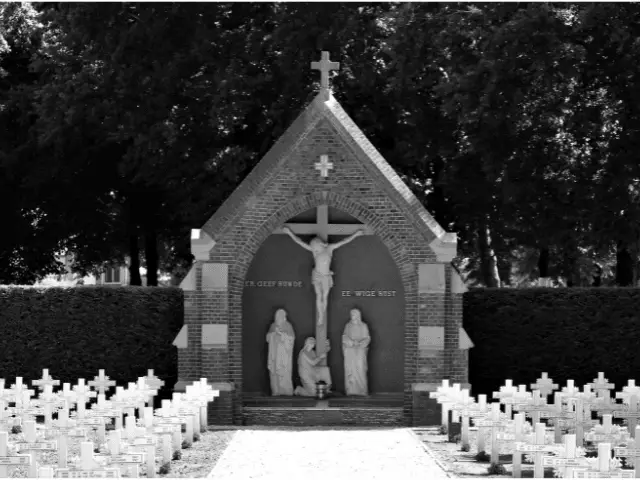
In some cases, people will say they don’t want a funeral only because they think that the traditional American funeral is the only way to be buried or cremated. There are some fun alternatives to the traditional funeral, and also some more practical solutions which save you time and money.
Direct burial/cremation
Direct burials and cremations occur as soon after death as is legally permitted. They are much cheaper than traditional funerals as they involve a simple container and only involve the basic funeral home charge for transporting the body and preparing it for burial or cremation.
In the case of burial, a simple plot in a cemetery is required and cremations will need a simple urn to collect the ashes in. No service is required although a graveside one can be requested for an additional fee. A grave marker is normally required as well for burials in most cemeteries.
This option is several thousand dollars cheaper than the traditional style of funerals which can run to $12,000 to the approximate $1,000 range of direct burials and cremations.
Green burial
These types of burials are supposed to have as little impact on the environment as possible, so embalming is out. Simple biodegradable caskets are also opted for, which can be significantly cheaper. Green burials normally occur in special cemeteries which may as expensive as ordinary burial grounds, but sometimes even more so. Nevertheless, here the focus is on reducing the deceased carbon footprint as they leave this world. You can find out more about green burials here.
Home burial
Having a home funeral and a home burial is the most traditional way of disposing of a dead body, but we haven’t done it in the States for centuries. In most cases, the law is on your side and there is very little that you can’t do on your own without the need for requesting the service of a funeral home.
Bodies can legally be buried on private property, particularly in rural areas, and this alone can save you thousands of dollars in cemetery fees. For more information about this, please read my article about burials on private land. However, you definitely shouldn’t attempt a cremation at home, and here is why.
Burial at sea
Burial at sea is entirely legal as long as you follow the directions of the Environmental Protection Agency (EPA). The rules are as follows:
- the EPA issues General Permits for sea burials
- Burial must occur at least 3 nautical miles from the shore
- burial must occur at a depth of 600 feet (1800 feet in some states)
- The body must be enclosed in a submergible container – either a casket or shroud
- The body should be weighed down with around 300 lbs.
- The burial must be reported to the EPA within 30 days
Scattering ashes at sea
Scattering ashes at sea follows the same rules as those for burial at sea.
Virtual funeral
Another way to rapidly cut down on the cost of a funeral is to do it virtually. Not having to plan for in-person visitations, transportation and catering can cut down the cost of a traditional funeral by almost 50%. Find out more about the average cost of a virtual funeral here.
How to say goodbye without a funeral

The biggest issue with not having a funeral is the fact that they are very good at dealing with grief. Essentially a funeral is for the survivors and not for the deceased.
If you find yourself in a situation where you haven’t been to a person’s funeral and you didn’t see them being committed to the earth or flames, saying goodbye can be tough.
we all deal with grief at different rates but most of us will go through those familiar 5 stages of grief before we reach acceptance. Not dealing with your grief properly is very serious and if you are feeling depressed and defeated for any considerable amount of time you should talk to a professional grief councelor.
I can recommend this service which allows you to connect with a trained professional without having to take time out of a busy schedule.
The best way to say goodbye without attending a funeral is to talk about the deceased with a trusted friend or a spouse and spend time celebrating their life.
Small symbolic acts such as planting a tree, burying a photograph, letting a balloon go, or even lighting a candle in a church can allow your mind to focus on your loss.
What happens to a body if there is no funeral
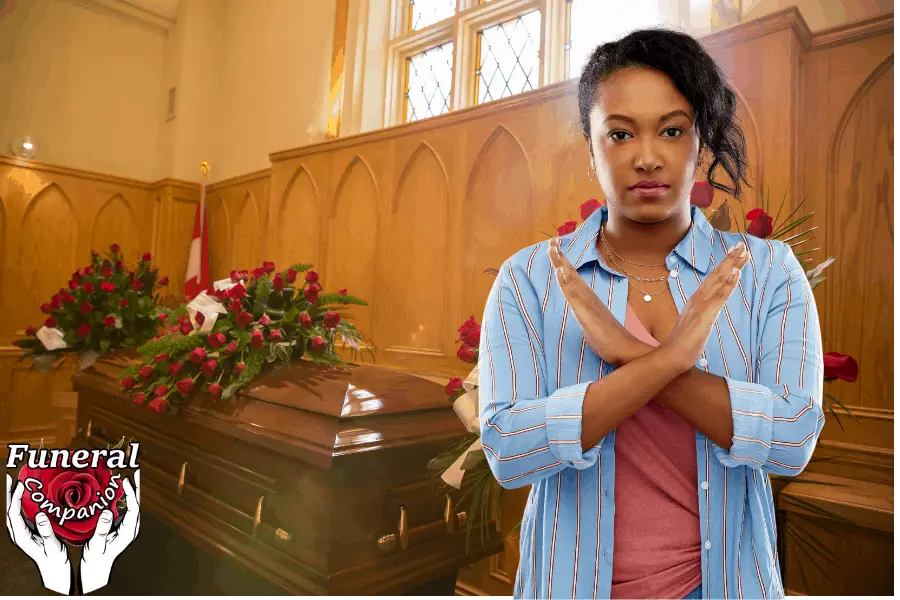
When a body remains unclaimed for a certain period (each state has its policy) it will be taken into the custody of the state. The local government will enlist the services of a local funeral home which will prepare the body for direct burial or cremation.
The gravesite will be recorded in case the body is later claimed as will the ashes from a cremation. The entire process is done with as much dignity as possible and at the lowest possible cost to the taxpayer.



